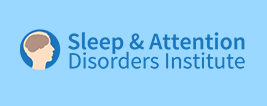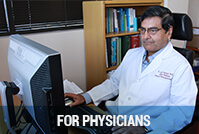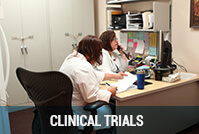Frequently asked questions:
- Q: Do you accept my insurance?
A: We participate with most major insurances. Below is a partial list of insurances we participate with:
(PDF Version)- AARP
- Aetna
- ASR
- BCBS (most plans)
- BCBS Medicare Advantage
- Beaumont Employee Health Plan
- Blue Card
- Blue Choice
- BS Federal Employee
- BCBS Medicare Advantage Plans (such as Medicare Plus Blue)
- Cofinity
- Golden Rule
- HAP PPO
- HAP HMO
- HAP Senior Plus
- Health Plus
- Humana
- Humana Advantage
- Humana Gold Choice
- McLaren
- NGS American
- Priority Health
- Tri-Care (as out of network provider)
- Q: What will my cost be compared to going to a hospital center?
A: A mother recently showed us the billing details for her daughter from a local hospital. For an overnight sleep study in the lab, the hospital billed $4334.00. The insurance company approved $1741.14. She paid a $500.00 deductible and a 20% copay of $248.23 for a total of $748.23. The insurance company paid $992.91, so that the hospital collected a total of $1741.14. We bill $1125.00 and the same insurance company pays us (as a physician office) $687.53. She could have paid for the entire test out of pocket and still paid less than she paid the hospital.
If you have a 20% copay, you would pay the hospital $348.28 for a sleep test there, but you would pay us only $137.51 for a sleep test with us. That is a $210.77 savings! And it keeps adding up. - Q: I hear many people prescribed CPAP don’t use it. What do you do for such patients?
A: Nationwide, published data shows that 59% of patients prescribed CPAP actually tolerate it and use it regularly. We have published data showing 90% of our patients prescribed CPAP use it regularly. We put in extra time and effort to help our patients get used to CPAP, which results in better outcomes for our patients. - Q: I was told I have sleep apnea and was put on CPAP. I don’t feel better. Can you help me?
A: Sometimes your sleep apnea may not be the cause of your symptoms. We have hundreds of such patients who were put on CPAP and continued to have poor sleep or sleepiness issues. Too many sleep specialists only want to treat sleep apnea. We diagnose and treat all sleep disorders. Patients can have more than one sleep disorder, in which case we will treat them all. - Q: I take sleeping pills for insomnia. They are less effective with time. Can you help me?
A: The traditional sleeping pills all work the same way. They are addicting and often become less effective with time. We use other medicines that are not addicting and usually help without losing effectiveness with time. - Q: I just want a prescription for sleeping pills. Will you give me one?
A: There are many effective ways to diagnose and treat insomnia. After we have done a thorough evaluation, we can give you expert advice. If we can find a cause, we treat it. Cognitive and behavioral changes often help. When we do use medicines, we usually prescribe non-addicting medicines. We hardly ever prescribe sleeping pills. - Q: Can you really confirm whether I have attention deficit (ADD/ADHD)?
A: Yes, using the EEG. The FDA has approved testing based on the EEG to confirm ADHD in patients with symptoms. We use that testing and even better testing that we have published a paper on. - Q: I tried medicine for attention deficit and it did not help. What can you do?
A: Perhaps the dose was not right. Perhaps the medicine was not the right medicine. There are many medicines that may help in attention deficit. None of them work for everyone. We can test to predict which medicine will work. We will work with you till we find a medicine that fully controls your ADD/ADHD symptoms. - Q: I just want a prescription for stimulants like Adderall. Will you prescribe it for me?
A: There are many medicines for attention deficit. After a thorough evaluation and testing, we can predict which medicine is most likely to work robustly for you. We do prescribe amphetamines, but they are just one of several medicines we use, and the most addicting. Therefore, we are cautions about using it and it is not usually our first choice.. - Q: How long will it take to get an appointment?
A: We will usually offer you an appointment within a week of your calling. - Q: I was referred to a local hospital and they have a several weeks waiting list for testing. Can you help me?
A: Yes, we will usually offer you a testing appointment within a week of your first appointment. (It may be longer if your insurance requires pre-authorization for testing). - Q: My friend had testing done at a local hospital and then had to wait weeks for the results. Is that what will happen?
A: We hear that all the time. We also see patients all the time who tells us they had testing done at a local hospital but never saw the doctor. We will usually offer you a follow-up appointment within a week of your testing. If you had testing done recently somewhere else though and cannot get in to see that physician, you really should follow up there. It would not be fair to our regular patients to use their time slots to take care of other sleep centers’ patients. - Q: What does inconclusive home sleep testing mean?
A: Firstly, it should be called home sleep apnea testing (HSAT), not home sleep testing. It monitors breathing, but not sleep. HSAT may be positive or inconclusive. With no technologist to monitor and fix when sensors slip or fall off, and no EEG recording to decide for sure when you are sleeping and when you are awake, HSAT is often inconclusive. When used the way many insurance companies now require (indiscriminately with most patients), it is inconclusive about half the time. HSAT is not designed to exclude sleep apnea. There is no such thing as a negative HSAT. Therefore, almost all insurance companies allow testing in the sleep center after an inconclusive HSAT (though some insurance companies require two inconclusive HSATs). Unfortunately, this may mean two to three tests (1-2 HSATs and one testing in the center) to diagnose sleep apnea. Some patients may lose patience and want to drop out of the process, but that just means the insurance company wins and the patient loses. - Q: What is the difference between CPAP and APAP?
A: CPAP is continuous positive airway pressure. We bring you in for an overnight test in the center, and find the right pressure for you. To determine when you are breathing normally and when you are having sleep apnea, we need to monitor airflow, breathing effort, and oxygen saturation. Airflow alone is too irregular and cannot be relied upon by itself. APAP is auto-titrating positive airway pressure. The APAP monitors airflow only, not effort or oxygen saturation. It decides based on this incomplete information to repeatedly raise or lower the pressure through the night. Sometimes it works. Often the pressures get too high, causing patient discomfort, high leaks, arousals and awakenings. This may make APAP more difficult to use or may even cause central sleep apnea. Other times the pressures may be too low, and low oxygen and sleep apnea symptoms may continue. In such cases, a CPAP overnight test can be done. The APAP machine can then be set with a fixed pressure to work in CPAP mode.









